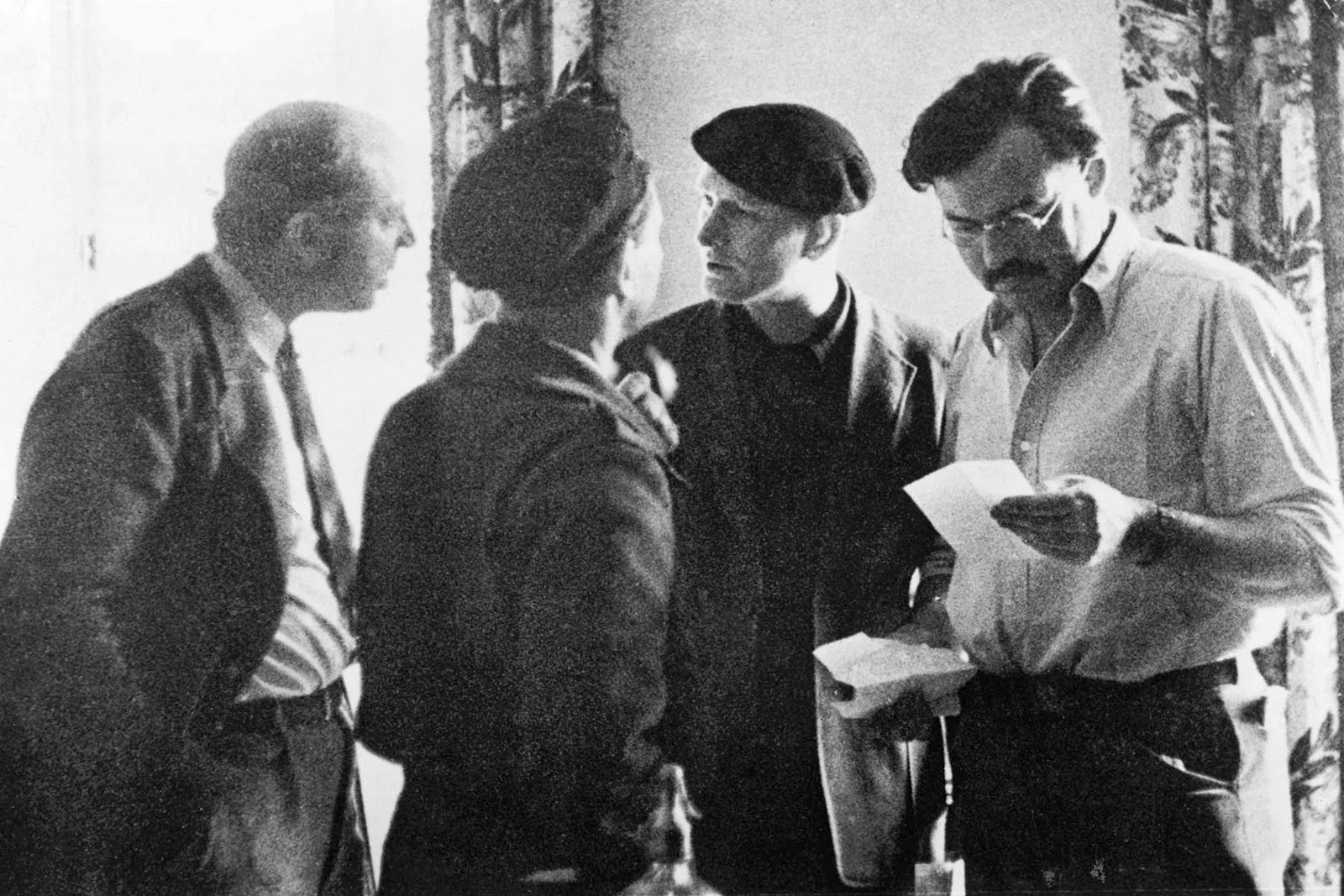
Books
Dos Passos, Hemingway, and France
In the 1969 video clip below, a French TV crew interviews my grandfather, American author John Dos Passos, about his life and literature. The clip concerns Dos Passos’s earliest memories of his friendship with fellow American writer Ernest Hemingway. Though the writers had initially crossed paths as early as 1918 during ambulance corps duty, they did not socialize at length until the early 1920s.
In his memoirs, The Best Times (1966), Dos Passos recounts their first significant meeting: “I believe I’d run into Ernest the year Ulysses came out while he was in Paris working for The Toronto Star. There’s a dim recollection of eating a meal with him and Hadley at Lippe’s before there was any Bumby, and of Ernest’s talking beautifully about some international conference he’d recently attended. When he was a young man he had one of the shrewdest heads for unmasking political pretensions I’ve ever run into.”
Additionally, this video clip provides evidence of Dos Passos’s lifelong affinity for the French language.
When Dos Passos met Hemingway in Paris, he already knew the city and understood French perfectly. At his father’s insistence, he had embarked on a grand tour of Paris and other major European cities when he was fifteen.
Earlier still, he had shuffled around Belgium with his mother and father. It is possible that Dos Passos even had a mild French accent during his teenage years.
During college and early adulthood, Dos Passos studied and admired French writers. His first critically successful book, Three Soldiers (1921), contains an epigraph by the French author Stendhal.
Throughout the 1920s, Dos Passos frequented the French Riviera villa of Sara and Gerald Murphy, where he drank and socialized with the country’s finest artists.
In 1931, Dos Passos translated and illustrated Frenchman Blaise Cendrars’s Le Panama ou Les Aventures de Mes Sept Oncles.
One of the peaks in Dos Passos’s literary reputation came in 1936, when French philosopher and Nobel Laureate Jean-Paul Sartre called him “the greatest writer of our time.”
Throughout his life, Dos Passos enjoyed the benefits of a Mediterranean diet heavy on saffron rice, olive oil, wine, garlic, and garden herbs. In his elder years, he could often be found adding lemon juice to a fresh fish dish.
The heartiness of his speech in this video clip, captured a year before the writer’s death, testifies to his devotion to the French language. Despite fatigue, Dos Passos manages facility—even eloquence—speaking the language of Hugo, Molière, and Camus.
